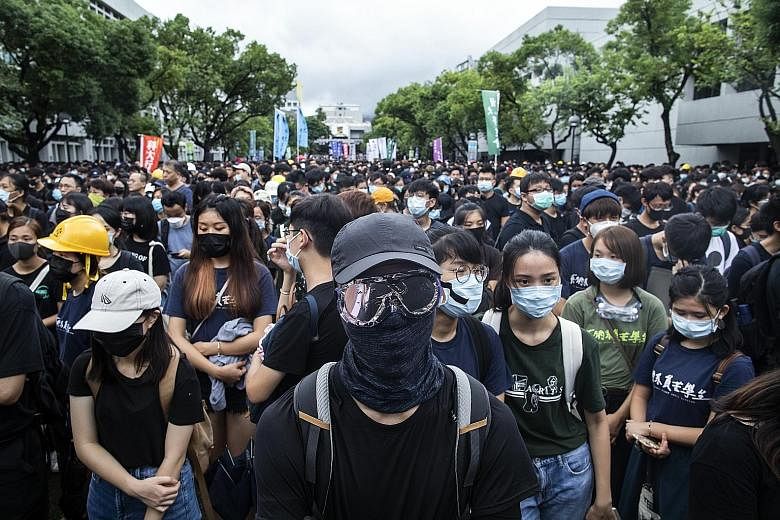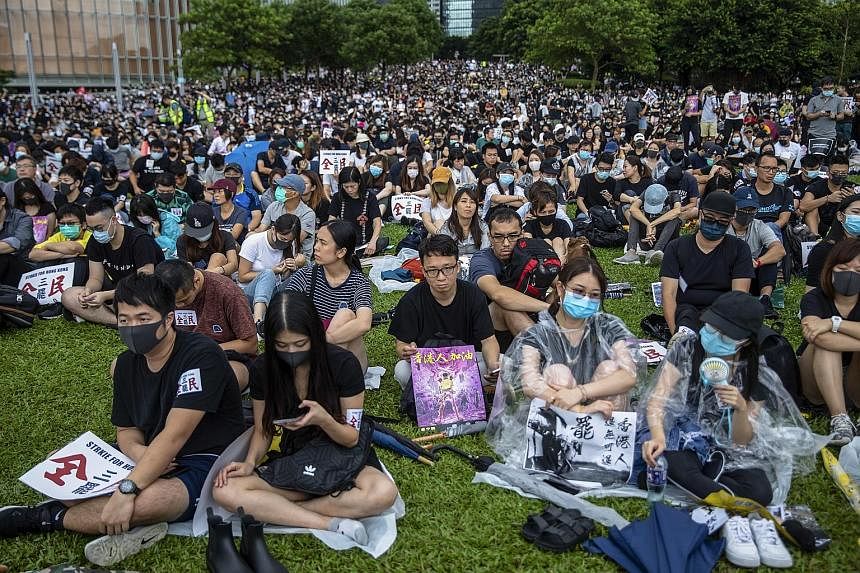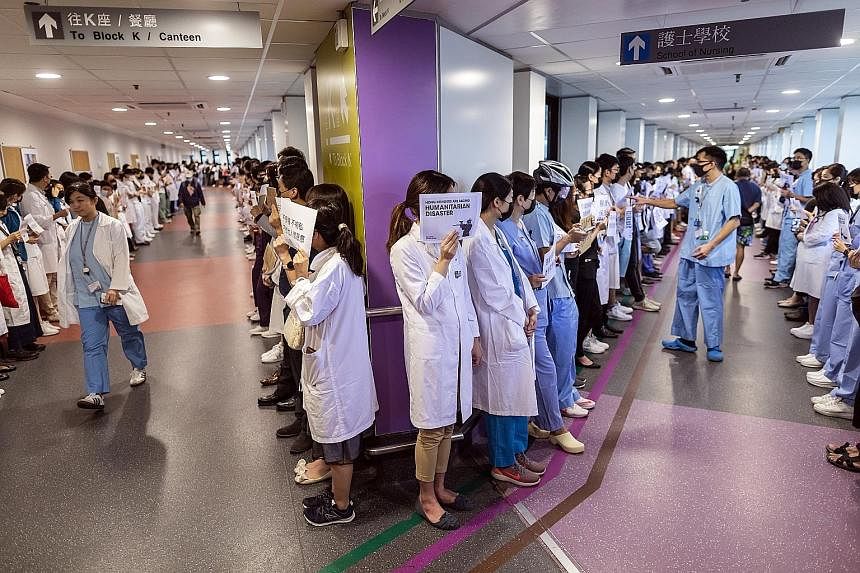Hong Kong was placed on lockdown yesterday, with greater police presence throughout the city as anti-government protesters gathered at rallies in various locations and thousands of students skipped classes on the first day of a new school term.
Last night, after a peaceful rally nearby, some protesters gathered next to the Hong Kong headquarters of the Chinese People's Liberation Army and the police used pepper spray to keep them back.
Earlier in the day, at Tamar Park, adjacent to the government headquarters, tens of thousands of protesters gathered under an overcast sky, listening to speeches on the anti-extradition Bill movement.
Ms Carol Ng, head of the Confederation of Trade Unions which supported the Tamar Park rally, estimated that more than 29 sectors took part in yesterday's strike and that over 40,000 people turned up. The police have yet to announce their count.
The previous citywide strike last month drew an estimated 350,000 people, while 290,000 turned up for seven rallies across the city.
Ms Maggie Chung, 32, told The Straits Times that she took sick leave to join the two-day strike which began yesterday, adding that she has been helping out on the front lines of clashes with the police by offering saline solution to protesters affected by tear gas since June 9.
Asked how long she could continue protesting, the accountant said: "I'm actually very afraid but someone has to go out there to press the government so I will join for as long as I can."
Mr Edwin Chan, 32, did not mask his face, unlike most other protest participants. "This is an approved rally and there's nothing to be afraid of," said the employee at a luxury watch retailer.
Asked about the inconveniences caused by the disruption campaigns to prevent trains from leaving and the destruction of public and train station facilities, Mr Chan said the hardcore protesters will have to face the rule of law eventually.
"The problem here is that the police have also breached the law by using excessive force but the government is not taking them to task, so it's very unfair.
"You can arrest (the protesters), but they already cannot resist so why beat them up?" he asked.
Ahead of the rallies, groups of black-clad masked protesters disrupted parts of the city's subway services during rush hour, in what is now the 13th straight week of demonstrations.
To prevent trains from leaving the stations, protesters used umbrellas or their bodies to block commuters at various stations such as Kowloon Tong, Fortress Hill, Yau Ma Tei, Prince Edward and Mong Kok.
Separately, students in Hong Kong boycotted the first day of classes yesterday, with 4,000 secondary students from some 230 schools joining an assembly at Edinburgh Place in Central, before an estimated 30,000 from 11 tertiary institutions turned up at Chinese University for a mass rally.
Students said they would give the government two weeks to respond to their demands for greater demoncracy before further escalating their action. Students from the 11 institutions planned to boycott classes for two weeks.
Meanwhile, the city's No. 2 official Matthew Cheung is keeping open the option of rolling out an emergency law to help the police contain increasingly violent protests which have escalated since June.
"We are reviewing comprehensively, with an open attitude on what could be used," Mr Cheung told reporters, adding that any action would need to be "reasonable".
He was repeating comments made last week by Chief Executive Carrie Lam about the sweeping colonial-era law, which allows for easier arrests, deportations, censorship and property seizures.
It has been invoked only once - during riots in 1967.
More than 1,100 people have been arrested so far, and the police said a number of imitation weapons, air guns as well as BB pellets had been spotted at recent protests.
SEE OPINION













